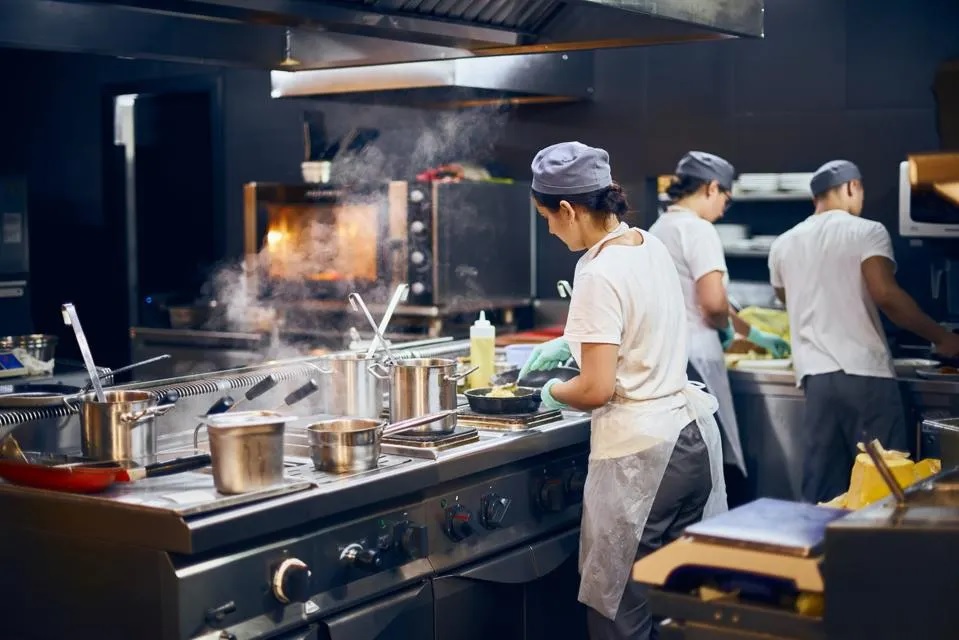The food delivery industry in the UAE has seen tremendous growth over the past few years with the rise of apps like Talabat, Zomato and Careem Now. This growth has coincided with the emergence of a new concept – virtual kitchens that operate without a traditional dine-in setting. Dark kitchens, ghost kitchens and cloud kitchens have come up as innovative solutions for restaurants to expand into delivery-only models and cater to the surging demand for online food orders in the country. In this article, we explore the rise of these virtual kitchen concepts and how they are shaping the food delivery space in the UAE.
What are Dark Kitchens, Ghost Kitchens and Cloud Kitchens?
UAE Dark Kitchens/Ghost Kitchens/Cloud Kitchens all refer to commercial cooking facilities that prepare food specifically for delivery and takeaway, without any provision for dining-in.
– Dark kitchens are delivery-only commercial kitchen spaces that operate multiple brand kitchens under one roof. They focus only on food preparation and delivery logistics to maximize efficiency.
– Ghost kitchens also prepare food purely for delivery but work as independent kitchens for a single brand. They have no physical storefront and customers only order through delivery platforms.
– Cloud kitchens utilize underutilized commercial kitchen space and rent them out on demand to restaurants looking for delivery-only solutions. Multiple restaurant concepts can share the same cloud kitchen facilities.
The rise of virtual kitchens
With Dubai ranking among the top food delivery markets globally, virtual kitchens have proliferated rapidly in the past couple of years as a cost-effective option for restaurants. A few factors that have contributed to their rise include:
– Surging demand for online food ordering – Delivery services in Dubai saw 70% growth in 2020 alone. This created opportunities for delivery-focused restaurant concepts.
– High real estate costs – Renting kitchen space is more viable than maintaining expensive dine-in restaurants in areas like Dubai. Virtual kitchens eliminate this overhead.
– Ability to launch multiple brands – Dark kitchens allow restaurants to launch and test multiple delivery-only brands under one roof through a single back-end operation, improving chances of success.
– Better unit economics – By cutting dine-in costs and optimizing for delivery only, virtual kitchens improve profit margins substantially per order compared to traditional restaurants.
– Access to more residential areas – Due to their delivery focus, virtual kitchens can efficiently service suburban and residential areas not feasible for dine-in restaurants.
As a result, major dark kitchen operators like Kitopi, Sweetheart Kitchen and BoxKitchen have launched robust networks across Dubai in recent times providing on-demand, fully-equipped commercial kitchen facilities for food businesses.
Changing restaurant models
With virtual kitchens proving their potential, even traditional restaurants are now exploring the hybrid model to supplement dine-in revenues. For example, Canada-based Tim Hortons launched its first cloud kitchen in Dubai last year to exclusively cater to delivery demand using its existing brand recognition.
Other restaurants are using ghost kitchens to test new delivery-focused concepts alongside their regular operations. Elite Foods Group which operates brands like Asia Asia and Torno Subito launched a pizza brand called Tasty Bites only for delivery through third party platforms like Talabat from a ghost kitchen.
Such hybrid virtual-physical models allow restaurants to tap into new customer segments and geographical areas beyond their dine-in limitations. The asset-lite, lower risk nature of virtual kitchens also makes it easier for aspiring restaurateurs and delivery-only food businesses to enter the market.
Challenges and the path ahead
While virtual kitchens have found success in the UAE, a major challenge remains high rents which eat into margins. As the sector grows, finding affordable real estate solutions will be critical. Standardization of kitchen facilities and ensuring quality control across multiple brands operating from the same space also requires attention.
With recent investments and partnerships, major players like Kitopi have expanded aggressively and are eyeing regional growth as well. As more restaurants embrace hybrid models and multiple delivery-focused brands emerge, virtual kitchens will play an increasingly important role in shaping how UAE residents access and consume their food in the future. Their ability to test new concepts at low costs and optimize for areas currently underserved makes them well-positioned to take the industry to the next level in the coming years.
*Note:
- Source: CoherentMI, Public sources, Desk research
- We have leveraged AI tools to mine information and compile it


